HAUPT. UNCEASING FESTIVAL OF THE WORLD | ANDRZEJ NIEWIADOMSKI, PhD

The Haupt Festival in Gorlice. Alright, I thought, it has begun… No, maybe it’s not alright. Or actually… After all, today does seem to be an inevitable stage in the process of familiarising oneself with and exploring the works by the author of “Rain.”
About the same time that I found out about the planned event and received an invitation to participate in it, the Department Board at one of the universities assigned me to review yet another doctoral thesis on this prose. In the bibliography of the received dissertation I have also found more texts from the field of hauptology, ones unknown to me (for they are very recent). The dream of the few (not for long!) admirers of Haupt’s work is coming true – and always in such situations, when dreams start becoming reality, an inevitable thought comes to our minds about a possible spiteful or grotesque form of this fulfilment. Anything can go too far, and the fate of the reception of many “forgotten” authors confirms the belief that on both sides, one of admiration and one of cognitive passion, there stand: blind love, one that is jealous and possessive, against ignorance accompanied by cynicism and opportunism. This is where catastrophe ensues.
How can one ignore the thought of it when talking about an author driven out from his two family homes by both great wars? He did not, however, turn his back on this modern world that brings failure as well as hope. He was interested, as it seems, both in what is gone, and in what is yet to come, though the first reading of his stories gives a different impression, disturbs the proportion, and seemingly only takes us back to what is past. Entangled in our own memories, we easily forget what the fascination with new works of human hands and minds meant to the protagonist (protagonists) of this prose. So let us not get overly concerned – after several monographs, several dozen articles, reviews, essays, it is time to begin the next level of reception. I suspect that the writer himself would be curious (just as, despite the nostalgia he often developed in himself, he was curious of the Other, the foreign countries and people) what reaches us from behind or from in between the lines of his works, this prose chiseled elaborately for years. The modesty apparent in his letters, or maybe something more like surprise or a lack of faith in his own abilities and talent, is also a matter of a certain convention. But could a writer so honest with his own work, so careful in all his nonchalance, and so uncompromising in his antidogmatism, have no care for the result of his actions?
I imagine Haupt, had he the chance, writing a story based upon the Haupt Festival. He himself could get interested in opinions, theses, but his protagonist… rather in the characters, in the body and spirit of poets, prose writers, researchers, in the customs, the context of nature and culture. I have no doubt that he could turn this event into a prose masterpiece that pretends not to be one. Only the entourage of characters would be different, but we would become, together or separately, the subject of creation built on simple perception, as in “The Wake and the Repast,” as in “Biały Mazur,” as in “To ja sam jestem Emma Bovary,” a modern lieutenant Boczyła here, a Benedyk there, or some lazy but vigilant and unsettled Emma, smoking, let’s say, Marlboros instead of Hels.
Let’s leave the imaginary for a moment though. Even if this real festival, which symbolically opens a new time of Haupt’s presence in the consciousness of readers-amateurs-lovers and readers-researchers, should be a pretext to some storytelling about Haupt, out of touch with the work itself, we still wouldn’t be far from the spirit of this work: after all, we know that “failedness” is its fixed component – and out of all that’s misguided, uncomfortable, incongruent, and unsuitable, Haupt built episodes creating the image of this wonderful “nonessentiality” (in the categories of commonly accepted hierarchy) and, having always had problems with people, he chose those fragments of their existence which were “unimportant” or so deeply submerged in the intimacy of the experience that nothing can be said for certain about them. So if we are in danger of “failedness,” we can compensate for this state by entering the matter of Haupt’s prose, experiencing it “from the inside,” evaluating the possibility of autoidentification, not forcing anything, tasting the bits that truly amaze us.
I could probably continue this a bit longer, multiplying good and failed arguments, but it won’t change the fact that despite my doubts upon having received the message about the festival, I am now almost certain that no festival can harm Haupt; it might even help his work. No, what am I saying; it can help us better understand the paradoxes connected with getting familiar with his work. I do not dare compare myself to the author of “Szpica,” but he did constantly have doubts – he rationalised them and continued to nurture them. It is thus no surprise that, having read a lot of Haupt, I was amused for a while with the concept of a “Haupt Festival in Gorlice.” Why in this place, and not any other? Because one should know that a Haupt session had already been planned in Zhovkva, the very centre of the writer’s “nonentitous” space: in the castle and in the shadow of the collegiate, one step away from the park by the Svynya River, where one of the stories’ protagonists failedly engaded in relations with Stefcia. And there was supposed to be a board on the wall of the family house, there was to be a symbolic comeback, the enthronement of Haupt on a throne set over Zhovkva’s empty grave. And, as it often happens, something didn’t pan out, didn’t work out, and this entire – I swear, I’m saying this without irony – beautiful plan came to nought, some money problems, then some war at the gates, that Rome of Żółkiewski’s, that Crimea of Putin’s, so – regardless of the good intentions of the initiators – again it’s very Haupt-like that this fact only existed in the sphere of myth, as unfulfilment, the perfect possibility, something which could be beautiful, because the cenotaph-city could, without skewing the facts (even though the facts are asking for it), honour its past citizen – and what place is better to talk about Haupt, look for the key to his work, than where his protagonist found its tender instrument – the lute?
Let this solely intended fact, however, find its way to the sphere of perfect concepts and – as it happens in Haupt’s stories – be confronted with what is not as smooth and polished, what is inconspicuous and seemingly random, insignificant in his biography. Just like Chełm/Chłąd or Bystrytsia in Gorgany, just like Gorlice, Szymbark, and Łosie. I wrote “seemingly,” because “Gorlickie” lies, after all, in the path which Haupt followed in the times of both war and peace, north of the Carpathian Mountains and along them, wandering away from and back to the mountains, and came close to death, failure, happiness, to memory, loneliness, and the contemplation of life, from Zakopane to Rachowo, and somewhere there, not necessarily in the middle, setting foot in Gorlice, Szymbark, and Łosie.
The story where the reality of this place can be found was the first one to be carved into my memory while reading Haupt’s prose published in samizdat. Or was it not so? Maybe this memory has been consolidated and “manipulated” by the fact that when in 1991 we reminded the figure of the then barely known author in “Kresy,” we re-published a variant of this story as one of the “illustrations” of his work? Either way, I followed in the footsteps of the author of “Balon,” but little stayed in my head of my visits in Gorlice, one stay in Szymbark and in Łosie, while – as if out of spite – I am haunted by the memories of my stay in Krempna which I took the long way back to from those places. And this is much further, this is the place where I then sat with my son on the terrace of a GS-bar and we ate pork chops and drank the horrible at the time Szczyrzyc beer, I think it was horrible because the brewery was going into its decline and before I knew it there was no sign left of its products’ existence. And I felt, when watching the locals, a bit like Haupt’s protagonist who entered Harry’s bar in Louisiana, and the summer both in Gorlickie and in Krempna was hot then (back then, those places were as exotic to me as Louisiana) and we also watched closely, “who here and who there,”* only the Szczyrzyc beer wasn’t “dead of ice” at all, and my teeth didn’t “stiffen,” they only got numb from the swill. And I could repeat today, only changing the place names (because I did return to Krempna): “I’ve only been to this Szymbark-Bystrzyca twice or thrice – so many years ago that I can’t even tell how many times it was. A very isolated memory of this, for it is far from my home, very cut off, a memory as separate as a piece of amateur photography glued into an album. A few amateur days of living separately. And you remember so much nothing from that.”
Of course, I do not intend to convince anyone that I, knowingly or unknowingly, became the writer, what I know is that experiencing this unremembered nothing is something which not only enables one to understand Haupt better, but also, together with him, beautifully not understand the world.
And now again, Gorlice – by chance and completely not so – maybe because of its location (not Zhovkva, not Lviv, but also not Warsaw nor Cracow) that is entirely safe, at least safe enough to be able to talk about Haupt in peace. About what has been done about the writer’s works and about what else should be (and we would like to have) done. On this occasion it would also be good to check what is it with this Szymbark-Bystrzyca and if, by any chance, Haupt’s memory didn’t overlap the topography of the Lower Beskids and Gorgany with the Bystrzyca River, and maybe even with the Chechva River (I might have gone too far here, since Haupt can always be suspected of such things, and Bystrzyca, the remnants of an estate, are, after all, part of the Szymbark area; moreover, maybe it was no coincidence that in “Pierścień z papieru” the “Gorlice” story was placed right after “Poker w Gorganach”). And maybe we should look among the numerous mountain cemeteries of the first great war for a gravestone saying: “Meine liebe Mutter, sei stolz, Ich trage die Fahne” (who knows if Haupt’s clue concerning a cemetery on the chaise road from Szymbark to Gorlice shan’t misguide us after all)? But these are trifles…
I look into this short, several-pages-long piece of prose and – surprisingly without surprise – I discover that we could talk and talk about its nuances. Not during one festival, conference, session, meeting. For example about its language, which could be discussed in another discourse, and about the language observations of Haupt (by the way, he wrote almost the same about Szymbark and the purity of the Polish language there as he did about Chełm/Chłąd, identifying this activity as a natural reaction to what is “foreign,” born in the spheres of cultural borderland). And maybe we could also say something about the surprising influence of this language on the prose of a few very modern writers?
How many riddles do Haupt’s autocommentaries hide, the whole metaliterary layer of stories, including the seemingly unimportant interjections, like the one about the Szymbark manor – that there are “logs” and not “blocks of wood” burning in the fireplace because blocks, blocks are “always very theatrical” – so it merits another look at the procedure of composing the surroundings and one’s own contemplation in the search of, well, what: the truth of reality or the truth of art?
Or by quoting the first sentence from the story from 1951, which we are interested in (“There once were three sisters: Stanisława, Maria, and Lala”), ask how it is (and is it at all) related to the beginning of Haupt’s 1969 series about Nietota (“ I could start it the old-fashioned way, for example like this”) or to the second sentence of Kuśniewicz’s 1971 novel (“There once were two sisters – Elżbieta and Bernadetta, and their brother, Emil”). And going further and thinking about the next parts of the text, ask about this particular liking for the name Maria, and then inquire about why the Szymbark manor bulldog is called Trefl** and if this fact, by analogy, has anything to do with the mystical meanings of the name of As*** the dog or with the card markings on the military tachanka? Or maybe the story of the initially absent fourth sister Elżbieta-Bieta is, say, compensatory in character? It is, after all, one of the few love stories that conclude with a happy ending of sorts, which is also understated (the story with the forester, as in Haupt’s Zabory prose), and maybe it is in some not entirely clear relation with the narratives about Panna and Nietota. But here we are entering an entire system of intricate connections and affinities, and it is indeed worth noticing thaf for Haupt – since we are talking exclusively about the Gorlice story as, say, the alleged starting point for the reading of the whole – the very division into what is peripheral or provincial, and what is focal, pivotal, and “sophisticated” is problematic. Because whan he writes about Łosie, he sees its people as whalers from New Bedford and Nantucket, and he juxtaposes the inscription on the grave with the “Made in USA” seal. Besides, this grave belongs to someone with “von und zu” in their name, maybe someone from regions that are far from Galicia, from which the writer’s progenitors came – regions foreign and distant, especially if we consider how grown into the Polish language Haupt was.
We cannot be sure how the writer’s imagination worked, but we do know that the young officer cadet’s grave stood in the shade of viburnum, just like the grave of the Scythian princess. Haupt – locating his protagonist in different places – obsessively replicated both literary-cultural contexts and the scenery of amorous or fatal catastrophes. For this reason the reading of his prose can start from “Gorlicki” or any other space, because hierarchy is hierarchy but the perception stays the same. By choosing one thing we choose it all, also that which in “Meine liebe Mutter…” appears as: “Something that is in itself, something without history, without future, what was and will be no more.” How come – we ask – something was but has no history? Is this possible? For Haupt – yes. Because a bit further he writes: “I thought this stone has forever and irrevocably encased my own youth, it once and today became separate and incomprehensible to myself.” For Haupt doesn’t tell us about his youth, he rather lays it before us. Let us not look for history and its laws here; something that is “in itself” must to a certain extent remain incomprehensible and alien. The writer guides us through the sphere in-between: from plainness to artistry, from the banality of biography to the highs and lows of literary creation. He doesn’t tell us how we are to understand this “thing,” but he ushers us into the zone of a story about incomprehension.
“You can forget everything, just keep one detail, a sample to test, a catalogue code, a countermark that can be shown in the countermarkroom to collect all the luggage, a stockpile left in oblivion.” “Meine liebe Mutter…” is then enough to dive into this great stockpile in which we cling on to the important (and we decide upon that in a capricious and arbitrary manner) props. Haupt doesn’t so much dazzle us with his world (it cannot be entirely “his,” because it became “alien”) as he invites us to travel through the ever common space of memory-oblivion and shows us the structure of our emotions, which are impulses equally of the world of things, language, and feelings.
The space of his prose is infinite, although – it may seem – geographically restricted. You can start from “Gorlicki,” you can organise a festival of oblivion which calls itself “rememberance,” a festival of misunderstanding, if you want to at least to some extent understand the author for whom the selflessness of art was most important. And only that kind of art and that kind of work tells us anything about the world, about existence and essence, because like the issues from all those spheres, it is intricate, lacking simple punchlines, and full of understatements. Should the Haupt Festival in Gorlice become the celebration of dubiousness – it will serve its purpose.
*Unless otherwise stated, this and future quotations are free translations of excerpts from Haupt’s works (translator’s note)
**English: Club, like the suit of playing cards (translator’s note)
***English: Ace (translator’s note)
 ANDRZEJ NIEWIADOMSKI, PhD | Poet, essayist, literary historian, editor. Co-founder and editor of the “Kresy” literary magazine (1989-2010). Has also done literary criticism for over 10 years. Had his debut in 1988. Author of nine poetic books: “Panopticum” (Lublin 1992), “Niebylec” (Warsaw 1994), “Prewentorium” (Lublin 1997), “Kruszywo” (Legnica 2001), “Locja” (Cracow 2005), “Tremo” (Lublin, 2010), “Dzikie lilie” (Poznań, 2012), “Kapsle i etykietki” (Mikołów, 2013), “Pan Optico” (Wrocław 2014), the essay book “Mapa. Prolegomena” (Lublin, 2012), and three academic books: ”Niebliskie wyprawy. Jerzy Zagórski i poetycka przygoda nowoczesności” (Lublin 2001), “Światy z jawnych słów i kwiatów ukrytych. O refleksji metapoetyckiej w nowoczesnej poezji polskiej” (Lublin 2010), “Jeden jest zawsze ostrzem. Inna nowoczesność Zygmunta Haupta” (Lublin 2015). Has also finished “K. Esej podróżny” and “Błękitne ciało. Esej nagrobny.” Author of numerous dispersed poetic, critical, and academic publications (articles in magazines, joint publications, dictionaries, post-conference publications). He deals with the issues of poetic avant-garde, the newest poetry, metapoetry, catastrophism in the interwar period, the heritage of the interwar period in post-war literature, the dynamics of internal connections within Polish modernistic prose. Has written for “Kresy,” “Twórczość,” “Odra,” “Znak,” “Topos,” FA-art,” “Pamiętnik Literacki,” “Teksty Drugie,” among other magazines. His poems have been translated to English, German, Russian, Slovak, Slovenian, Bulgarian, and Spanish, and put into anthologies of new Polish poetry throughout the last 20 years. Has participated in many literary and cultural events. He is director of the Modern Literature Department at the Maria Curie-Skłodowska University Lublin. He lives in Lublin.
ANDRZEJ NIEWIADOMSKI, PhD | Poet, essayist, literary historian, editor. Co-founder and editor of the “Kresy” literary magazine (1989-2010). Has also done literary criticism for over 10 years. Had his debut in 1988. Author of nine poetic books: “Panopticum” (Lublin 1992), “Niebylec” (Warsaw 1994), “Prewentorium” (Lublin 1997), “Kruszywo” (Legnica 2001), “Locja” (Cracow 2005), “Tremo” (Lublin, 2010), “Dzikie lilie” (Poznań, 2012), “Kapsle i etykietki” (Mikołów, 2013), “Pan Optico” (Wrocław 2014), the essay book “Mapa. Prolegomena” (Lublin, 2012), and three academic books: ”Niebliskie wyprawy. Jerzy Zagórski i poetycka przygoda nowoczesności” (Lublin 2001), “Światy z jawnych słów i kwiatów ukrytych. O refleksji metapoetyckiej w nowoczesnej poezji polskiej” (Lublin 2010), “Jeden jest zawsze ostrzem. Inna nowoczesność Zygmunta Haupta” (Lublin 2015). Has also finished “K. Esej podróżny” and “Błękitne ciało. Esej nagrobny.” Author of numerous dispersed poetic, critical, and academic publications (articles in magazines, joint publications, dictionaries, post-conference publications). He deals with the issues of poetic avant-garde, the newest poetry, metapoetry, catastrophism in the interwar period, the heritage of the interwar period in post-war literature, the dynamics of internal connections within Polish modernistic prose. Has written for “Kresy,” “Twórczość,” “Odra,” “Znak,” “Topos,” FA-art,” “Pamiętnik Literacki,” “Teksty Drugie,” among other magazines. His poems have been translated to English, German, Russian, Slovak, Slovenian, Bulgarian, and Spanish, and put into anthologies of new Polish poetry throughout the last 20 years. Has participated in many literary and cultural events. He is director of the Modern Literature Department at the Maria Curie-Skłodowska University Lublin. He lives in Lublin.


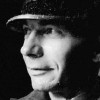

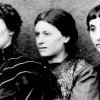
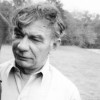
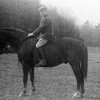
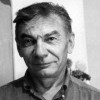
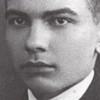
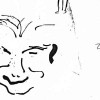
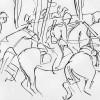
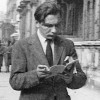
FIND US